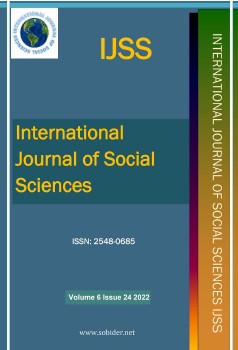Investigation of Nigeria’s Comparative Advantage for the African Continental Free Trade Area
Investigation of Nigeria’s Comparative Advantage for the African Continental Free Trade Area
Author(s): Ifeanyi Alan Eze, Osman Nuri ArasSubject(s): National Economy, Economic policy, International relations/trade, Comparative politics
Published by: SD Yayınevi
Keywords: Revealed Comparative Advantage; Revealed Symmetric Comparative Advantage; Goods; Free Trade Area; Nigeria;
Summary/Abstract: Nigeria’s comparative advantage for the African Continental Free Trade Area (AfCFTA), has been investigated by this work. The specific objectives of this study are calculating the Revealed Comparative Advantage (RCA) and the Revealed Symmetric Comparative Advantage (RSCA) of Nigeria, and computing and comparing the Revealed Comparative Advantage (RCA) and the Revealed Symmetric Comparative Advantage (RSCA) of Nigeria, Ghana and South Africa. Time series data of Nigeria’s, Ghana’s and South Africa’s export products namely raw materials, intermediate goods, consumer goods and capital goods were obtained from the World Integrated Trade Solution (WITS). The RCA and RSCA of raw materials, intermediate goods, consumer goods and capital goods were computed using the Balassa index, and it was found that Nigeria has comparative advantage in the export of raw materials but has comparative disadvantage in the export of intermediate goods, consumer goods and capital goods. Compared to Ghana and South Africa, Nigeria can profitably export raw materials to AfCFTA trade partners because, though Ghana and South Africa also have comparative advantage in the export of raw materials, theirs is lesser than Nigeria’s. Unlike Nigeria, Ghana and South Africa have relative advantage in intermediate goods export trade. In the export of consumer goods, Nigeria, Ghana and South Africa all have comparative disadvantage, but the position of South Africa is better than that of Nigeria and Ghana. Similarly, Nigeria, Ghana and South Africa have comparative disadvantage in the export of capital goods, however, the position of South Africa is better than those of Nigeria and Ghana. Based on the findings, this study recommends that Nigeria should continue to strengthen its raw materials exports and at the same time, pursue policies and programmes that would improve the comparative advantage positions of its intermediate goods, consumer goods and capital goods export trade. In the area of trade negotiations, the findings of this study has been recommended to the Nigerian Office for Trade Negotiations (NOTN) for adoption in its preparations of guidelines on the rules of origin for stakeholders’ negotiations under AfCFTA.
Journal: Uluslararası Sosyal Bilimler Dergisi
- Issue Year: 6/2022
- Issue No: 24
- Page Range: 422-433
- Page Count: 12
- Language: English

